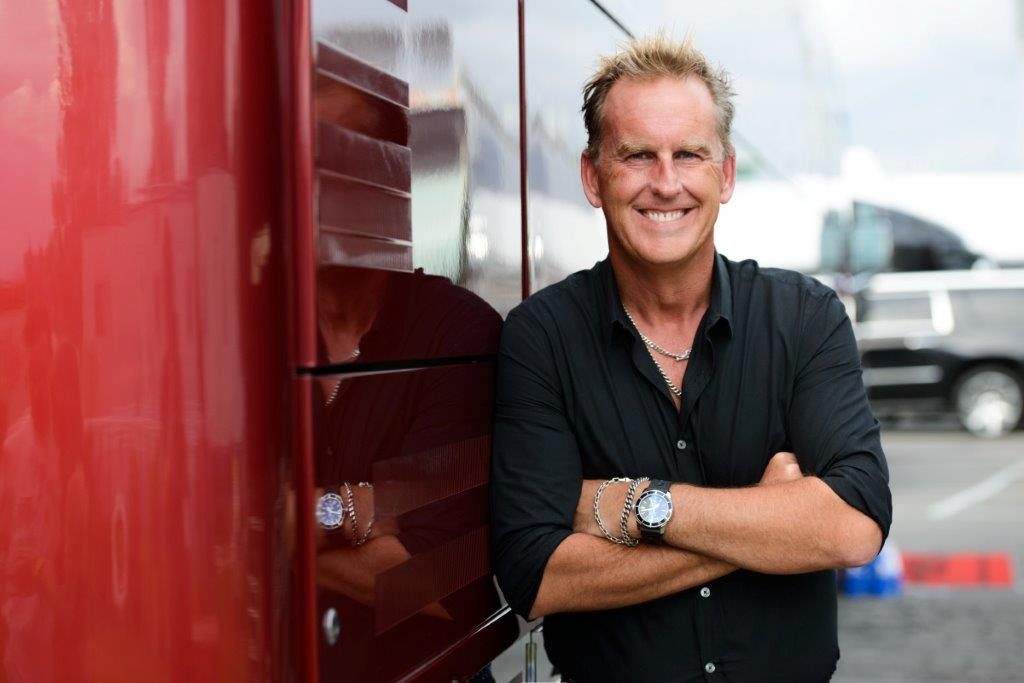

Brian O’Connell.
As Live Nation’s President of Country Touring, Brian O’Connell curates the talent lineups for Live Nation’s inventory of country music festivals, ranging from Chicago and Las Vegas to rural Michigan and the middle of Washington state.
“I try to construct some contrast so it’s not just the same subgenre of country night after night,” referencing the lineup for October’s third annual Route 91 Harvest Festival in Las Vegas. “You’ve got Toby [Keith] who has been an iconic figure now for over 20 years. He hasn’t played Vegas in forever. This is, I thought, a great opportunity for him to return. Brad [Paisley] hasn’t played Vegas in a long time so the market is really fresh for him. Luke [Bryan], of course is one of the hottest things going in the genre. So in terms of headliners, it’s a nice mix.”
While traveling to a Luke Bryan concert in Indianapolis, O’Connell spoke with MusicRow about the process of developing and executing these star-studded lineups.
“You try to curate the festival in such a way that it has variety. That all plays into who is planning on working. Which artists are still working during that time? You look at the playing field and say, ‘Here are all the artists that are eligible.’ Let’s take out all the artists that played last year, so it’s probably too soon to bring them back. What’s hot? What’s not? What is something that nobody is thinking of?”
With roughly 40 performance slots to fill for each festival, it offers O’Connell flexibility to feature talented, sometimes left-of-center newcomers such as Aubrie Sellers, Ryan Hurd, Lucie Silvas and Aaron Watson. O’Connell incorporated the Next From Nashville stage at several of Live Nation’s country festivals specifically for this purpose.
“For me, that provides the festival atmosphere where you can have some discovery,” he says. “I really like programming the second stage with bands that no one has heard of and watching them grow from playing at 4 p.m. in the afternoon and then boom, a few years later they are a headliner,” says O’Connell. “If you have that kind of latitude, variety is what wins from a talent point of view—talent and star power, along with the fan experience. Fan experience has to be first. If the fans don’t like it, they are not coming.”
O’Connell’s evaluation process for potential festival locations focuses equally on location, audience base and the right vibe.
“I always try to say I’m looking for interesting places to present interesting music. Do I have a list? Not really. Do I have a map? Absolutely,” O’Connell says. “Everybody knows where the population bases are. LakeShake is downtown Chicago and [Route91 Harvest] is on the Strip. Faster Horses is about 40 miles outside of Detroit in the Irish hills of Michigan. It’s a matter of what the theme is going to be, what the feel is going to be and then what kind of amenities are already there.”
While populating the number of country festivals around the country, O’Connell and his team maintain the focus on each festival’s caliber. He notes that producing higher-quality festivals doesn’t always translate into adding more smoke and spectacle year after year, but rather taking care of small details that cater to the audience’s basic needs.
“I’ve got a saying I stole from the Chicago Cubs manager Joe Madden, which is, ‘Do simple better.’ We sit and we have these meetings and we think we have everything all dialed in and then we walk the site, and we think, ‘Why don’t we put an umbrella on this table so people can get some shade?’ It’s the simple things we continue to try to improve upon year after year. It can be something as simple as bleachers for people to sit on. That’s the way we focus on our team, to do simple better. It doesn’t have to be so over-the-top. If they want over the top there are plenty of places for that. We like it where it is great for the artist and the fan.”
O’Connell still sees the state of touring as “healthy, overall,” and only getting better in the future. “I love the idea of what we have coming up, in terms of young acts, I think we have a bunch of giant superstars coming up.”
He cautions that some rising artists and managers attempt the climb from newcomer status to superstar headliner too swiftly. “I think that we have to be mindful of the process. People have a tendency to think, and they should to a certain degree, to aim for the moon. But you have to remember that just because you are a hot new artist in Nashville, you still have to win over the fans one by one. You can have a No. 1 record and a bunch of Twitter followers, but you need a good show and you need multiple hits to pull off your eventual goal, which is entertaining.
“Sometimes people try to go too fast and that’s the biggest thing right now,” he continues. “There are a lot of great managers and a lot of great agents out there that understand that. Let’s take our time, especially with a young act. Let’s grow it and put down some really solid roots. The big shows and all that will be there when we are ready.”

About the Author
Jessica Nicholson serves as the Managing Editor for MusicRow magazine. Her previous music journalism experience includes work with Country Weekly magazine and Contemporary Christian Music (CCM) magazine. She holds a BBA degree in Music Business and Marketing from Belmont University. She welcomes your feedback at jnicholson@musicrow.com.View Author Profile


